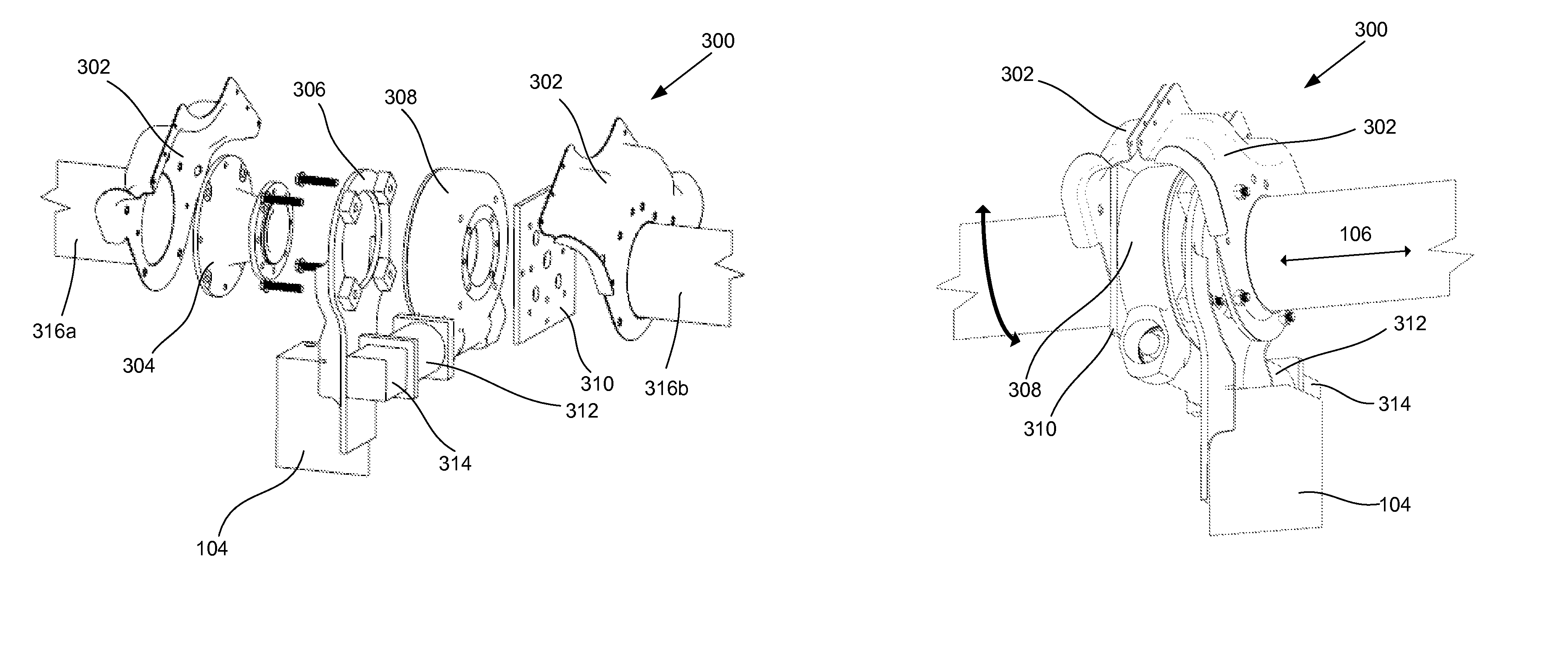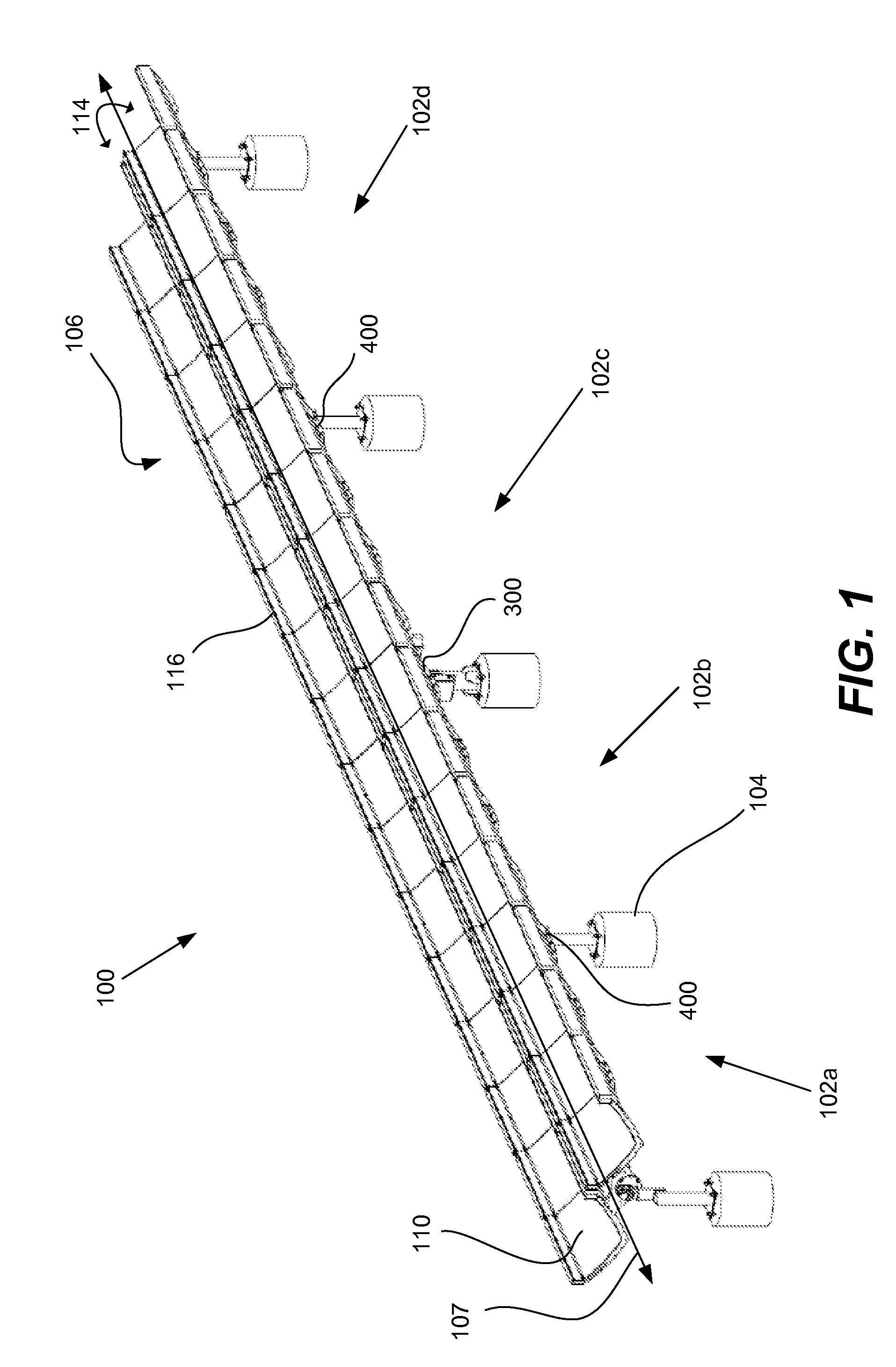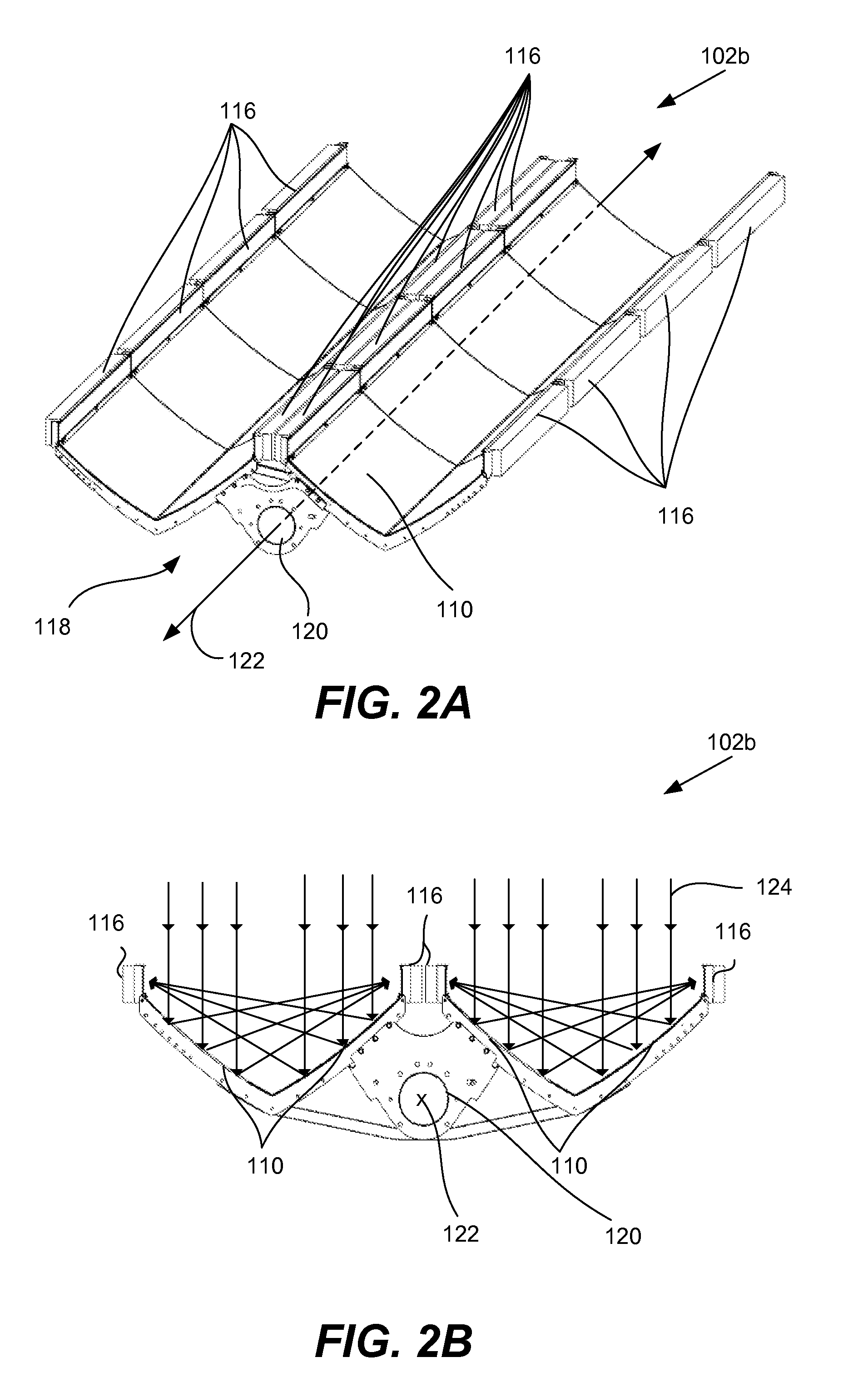Solar energy collection system
a solar energy collection and solar energy technology, applied in the field of solar energy collection systems, can solve the problems of manufacturing, installation and repair of the cpv system, and the most expensive component of the photovoltaic solar collection system,
- Summary
- Abstract
- Description
- Claims
- Application Information
AI Technical Summary
Benefits of technology
Problems solved by technology
Method used
Image
Examples
Embodiment Construction
[0020]The present invention relates generally to solar energy collection. Some aspects of the invention relate to solar collectors, arrangements of multiple solar collectors, and devices for tracking the sun. It should be appreciated that additional embodiments, features and drawings related to the present application are described in Provisional Application No. 61 / 229,905, filed Jul. 30, 2009, entitled “Manufacturable Dual Trough Solar Collector,” which is incorporated herein in its entirety for all purposes.
[0021]Referring now to FIG. 1, a solar energy collection system 100 according to one embodiment of the present invention will be described. Solar energy collection system 100 includes multiple solar collectors 102a-102d that are coupled end to end along a longitudinal axis 107 to form a solar collector row 106. Each solar collector includes a reflector 110 that is arranged to direct incident sunlight towards the solar receivers 116. The solar energy collection system 100 is arr...
PUM
 Login to View More
Login to View More Abstract
Description
Claims
Application Information
 Login to View More
Login to View More - R&D
- Intellectual Property
- Life Sciences
- Materials
- Tech Scout
- Unparalleled Data Quality
- Higher Quality Content
- 60% Fewer Hallucinations
Browse by: Latest US Patents, China's latest patents, Technical Efficacy Thesaurus, Application Domain, Technology Topic, Popular Technical Reports.
© 2025 PatSnap. All rights reserved.Legal|Privacy policy|Modern Slavery Act Transparency Statement|Sitemap|About US| Contact US: help@patsnap.com



